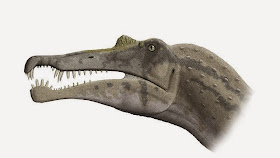Antimetabole (/æntɨməˈtæbəliː/ AN-ti-mə-TAB-ə-lee) is the repetition of words in successive clauses, but in transposed order (e.g., "I know what I like, and I like what I know").
Six-syllable words, in general, make me quite happy especially with this great meaning for an elegant turn of phrase.
Simple and profound:
John F. Kennedy's "Ask not what your country can do for you; ask what you can do for your country" is one of the most famous antimetaboles. (I also just like writing the word antimetaboles).
The antimetabole is similar to a chiasmus, though the chiasmus is applied fairly broadly to any "criss-cross" structure, often with a reference to the biblical cross. In its classical use, chiasmus was used for structures that do not repeat the same words and phrases, but invert a sentence's grammatical structure or ideas.
Antimetaboles brought me to amphiboles and their criss-cross crystal structure. Amphiboles are any of a class of rock-forming double chain silicate or aluminosilicate minerals typically occurring as fibrous or columnar crystals.
The amphibole structure includes silica tetrahedra with varying amounts of iron, sodium, calcium and magnesium:
(Note that the darker amphiboles are referred to as hornblende.)
The double chain structure of amphibole is shown here as well:
Amphibole shares the "two or both" Greek prefix of "amphi" with amphitheater, a theater on both sides, and amphibians, animals who live both on land and in water.
The cleavage planes of amphiboles are at 124 degrees and 56 degrees:
In cross-section, amphiboles show these cleavage planes:
And in the Scanning Electron Microscope (SEM), these are further amplified:
Amphiboles and Antimetaboles ~~ Antimetaboles and Amphiboles:
Criss-crossing minerals and words, words and minerals since October, 2014.
And, by the way, "criss-cross applesauce" is what I say to get Maizie to smile like this:
Either that or "antimetaboles" ;-).
Steph
-1.jpg)























































